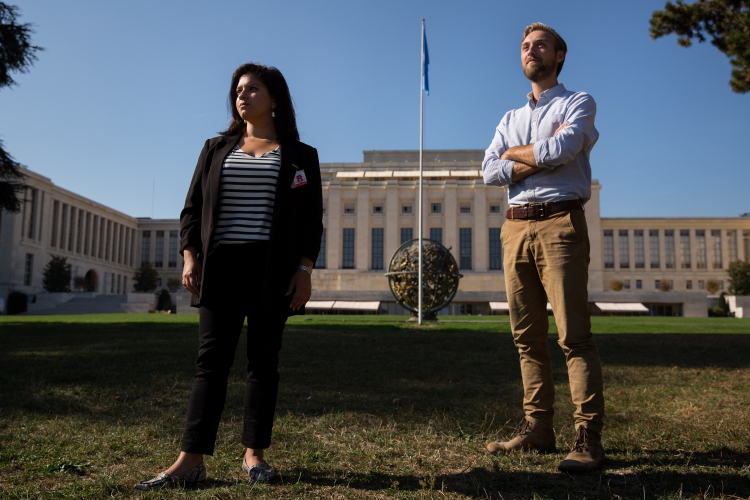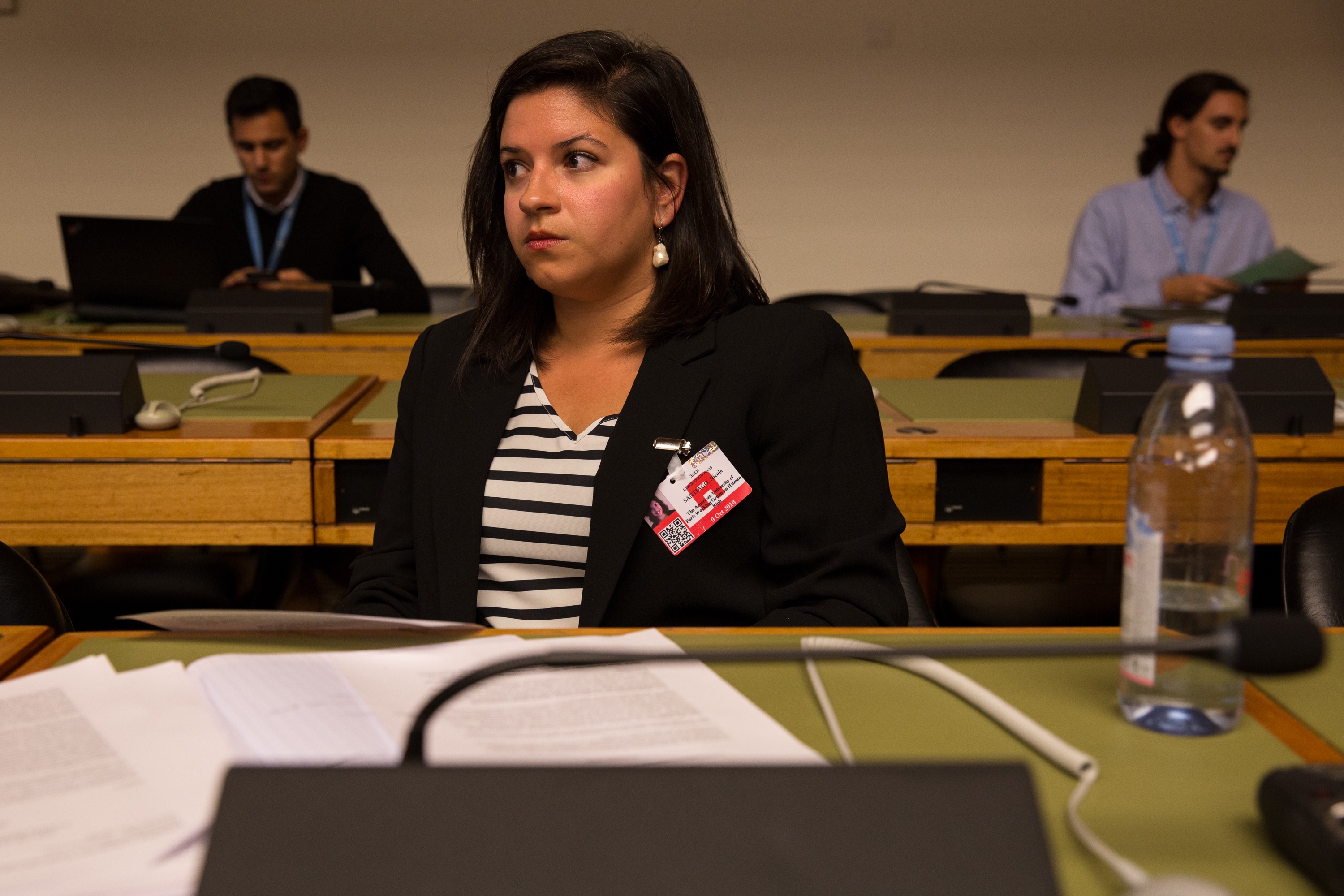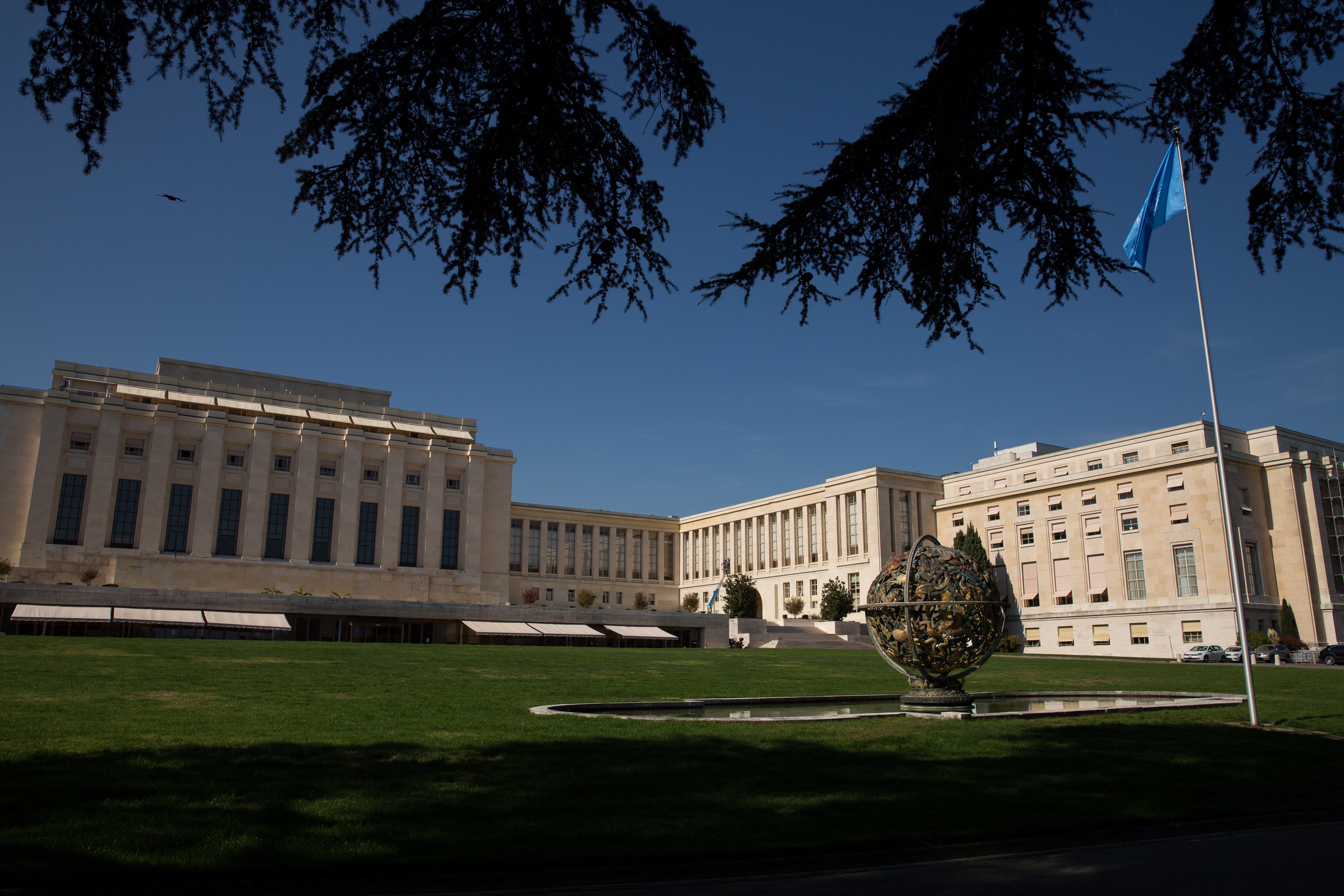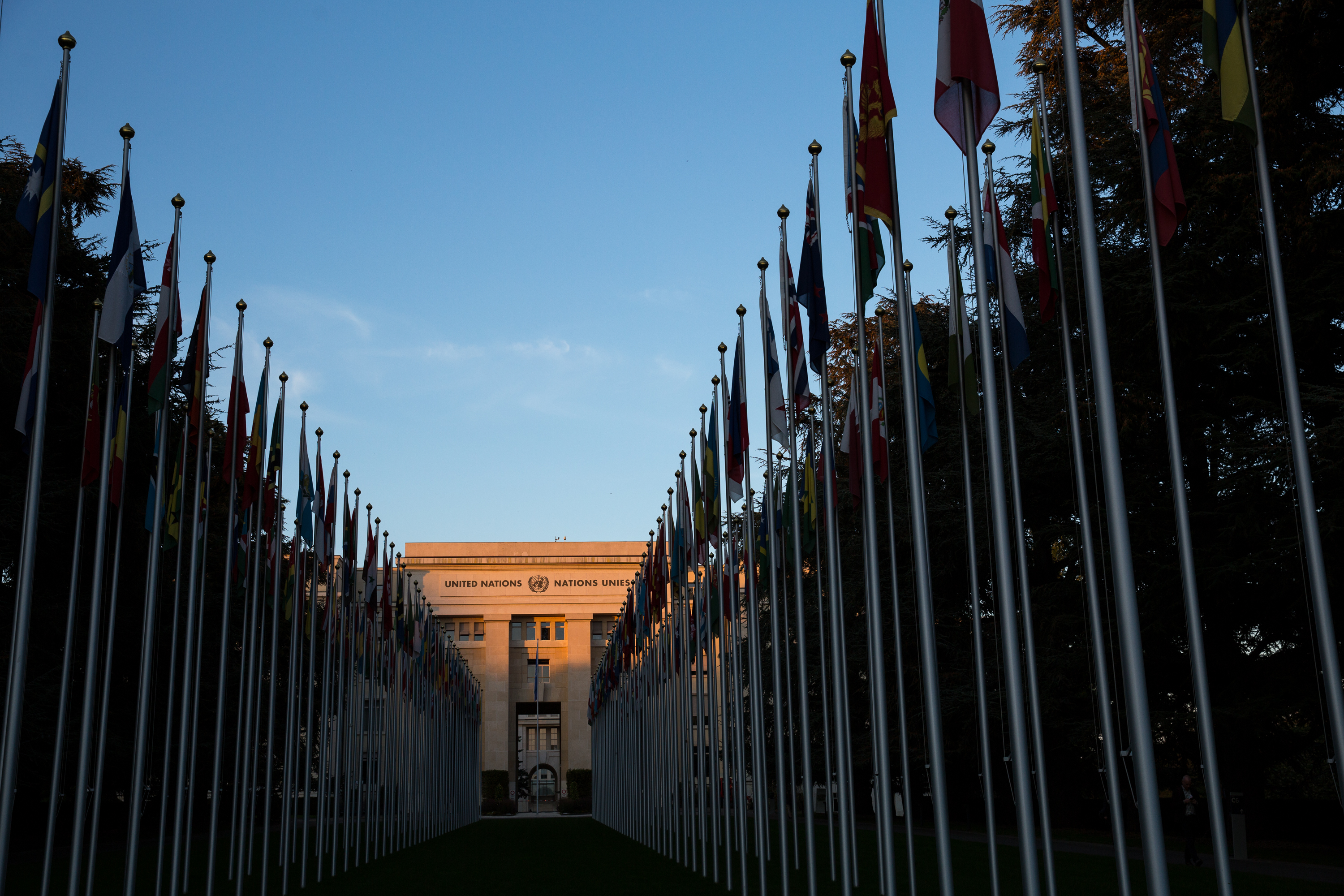AUP Students are Influencing International Law

On 9 October, the Working Group on Human Rights and Digital Technology (WGHRDT) presented research concerning the right of access to scientific progress and technology for vulnerable refugee and migrant communities at the UN in Geneva. AUP graduate student, international human rights lawyer and co-chair of WGHRDT Nicole Santiago stood before the committee expressing the importance for the general comment on the right to enjoy the benefits of scientific progress that both respects and protects the rights of these communities. WGHRDT started as an academic pursuit by AUP Professor Susan Perry and has developed into an organization focusing on human rights.
The day of the conference started with Ms. Santiago and AUP student and co-chair Gabriel Green taking a 6:30 a.m. scenic train ride to Geneva before taking seats in a large conference hall at the UN. Waiting patiently to present, Ms. Santiago and Mr. Green realized that hardly any other groups discussed refugee and migrant communities. "We felt like we brought something new," said Ms. Santiago. When WGHRDT was allocated their three-minute presentation, Ms. Santiago stood to demand a change for refugee and migrant communities experiencing unequal access to information.
Nicole Santiago preparing to present. Image Credit: Gabriel Green
Ms. Santiago and Mr. Green stated in their submission that access to the internet and the use of ITCs are essential for the very survival of the refugee and migrant communities. ITCs are used for the communication of families and friends, to collect information about migration risks, research legal rights and asylum laws, transfer and receive money, and connect with government and humanitarian laws. Besides accessing information to perform daily needs, it's used as a building block. "You need it to advance your career and education," said Ms. Santiago. "You can also access different languages," said Mr. Green. However, despite the importance of ITCs governments are infringing on these rights.
Governments are imposing blanket bans and restrictions within refugee and migrants camps and detention centers. "We argue this is a violation of people's rights to benefit from technology and science," said Mr. Green. Within the camps, phones are confiscated and access to the internet is blocked with the intent to prevent the public or journalists from seeing the camps and detention centers from the view of the migrants and refugees. Ms. Santiago and Mr. Green are calling for less restrictive measures and the right to access ITCs uninterrupted.
Image Credit: Gabriel Green
Ms. Santiago and Mr. Green also proposed the general comment include state parties' duty to ensure access to science and technology for refugee and migrant communities through special programs such as digital literacy training. As stated in the submission, a basic level of digital fluency is necessary for participation in daily life in societies dependent on modern technologies. While there are costs associated with these type of programs, state parties can work with private companies and non-governmental organizations for the collaboration of funding.
Beyond the three-minute presentation, Mr. Green explained it's a whole conversation that needs to be had. While the submission focused on the general need for recognition for refugees and migrants in special programs and access to technology, there also needs to be a talk about how this is going to be defined. "We knew the conversation didn't end that day," said Ms. Santiago. Both Ms. Santiago and Mr. Green are excited to see the drafting of the general comment.
The entrance to the United Nations at sunrise the day of the event. Image Credit: Gabriel Green
While many students believe that international law is inaccessible to them, Ms. Santiago explained that anyone passionate about the subject can get involved and potentially influence the final general comments. "It is impactful because there’s a chance to see it in writing and we collectively as students have the capacity to influence and participate in international law," said Ms. Santiago. Mr. Green explained that having an international customary law that records the issues that we think are important is beneficial for society in general. "As a global community, we have to start working towards getting laws in the books that will support human rights in a concrete way as things are changing with technology and science," said Mr. Green. Further, Mr. Green explained it is also important to keep these laws up to date.
Mr. Green expressed his appreciation having Ms. Santiago and Susan Perry as a team. "They are both very brilliant and legally oriented people who have a lot of insight about human rights," he said. Ms. Santiago and Mr. Green both encourage other students to participate. WGHRDT is not limited to the topics presented in the submission, in fact, any topics regarding human rights.
If interested, contact:
Nicole Santiago- a101092@aup.edu or Susan Perry- sperry@aup.edu










